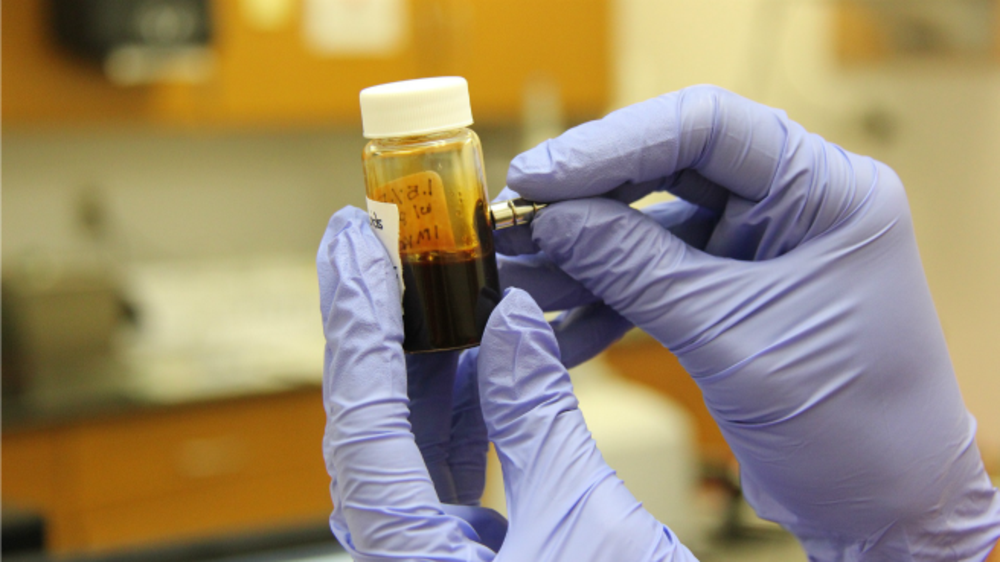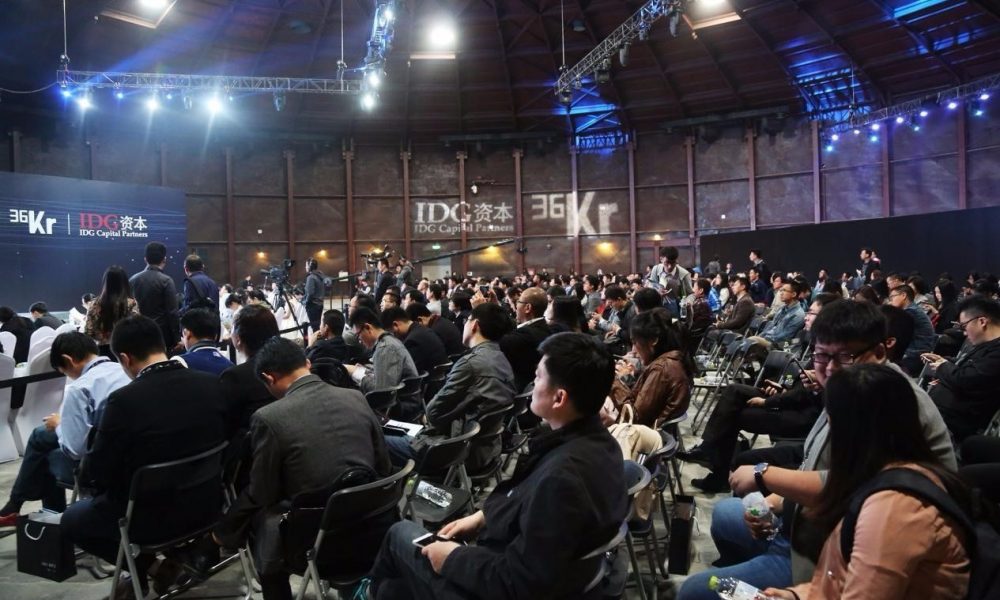Author: vivian
Singapore-based Rewardz secures US$2.1 million strategic investment from Japan’s Benefit One for expansion plan
Singapore-based human resource technology solutions provider, Rewardz Pte Ltd., today announced that it has secured a strategic investment from Tokyo-listed Benefit One Inc., a fringe benefit outsourcing service company established in March 1996 and claimed to have eight million members in Japan alone.
Following the deal, Benefit One has become the majority stakeholder in the startup, with an investment of S$3 million (about US$2.1 million).
Rewardz founders Sudhanshu Tewari, Nicole Seah, and Jaya Maru will maintain their shares within the company, together with Benefit One which had been appointed as a strategic investor as per December 1.
Rewardz has been digitising HR services in Singapore with products like EmPerks and Flabuless, which integrates traditional corporate benefits programmes with an online mobile application.
Tapping into gamification, the app allows staff to better visualise their benefits and track their health progress. The platform also allows employers to reward employees for their participation and progress.
The company stated that they are going to focus on monetising its current entities in Singapore, Malaysia, and Dubai in 2017. They also cited possibilities to expand into other Asian markets in the future.
“Although there are no immediate plans to enter the Japan market for Rewardz, we will be working towards integrating our technology into the Benefit One platform in Japan in the future,” Tewari explained.
But outside of Singapore, Rewardz is also available in Dubai, Hong Kong, Indonesia, Malaysia, and Australia. The company also claimed to have secured clients such as DBS, Manulife, Disney, NUHS, JTC, Fuji Xerox, DB Schenker, Intercontinental Hotel Group, Ascott Holdings, and Lendlease.
“One of the biggest challenges faced by any technology startup is funding the company until it scales up sufficiently to support itself. This long-term strategic partnership with Benefit One has solved this crucial problem for us and we will be fully focused on growth and to be scaling the business,” said Rewardz CEO, Sudhanshu Tewari.
By Vivian Foo, Unicorn Media
Three VC firms to launch US$375 million Biomedical Translation Fund
The Australian government under Turnbull has selected three VC management funds to administer its A$500 million (about US$375 million) Biomedical Translation Fund that is said to be Australia’s largest life sciences fund.
The three investment firms mandated to manage the government capital are – Brandon Capital Partners, OneVentures Management, and BioScience Managers – which have all been tasked to select and finance Australian start-ups in the health and medical research sector.
The capital fund is intended to boost life sciences sectors, specifically medical research projects in the advanced pre-clinal, Phase I and Phase II stages, according to a government statement.
The BTF was first pitched as part of the government’s National Innovation and Science Agenda which comprises A$250 million from the government with the remaining capital matched from the private sector.
Each manager was assigned to different portions of the fund but all three will screen investment proposals to the BTF and develop a broad portfolio of investment in Australian science and research.
Brandon Capital Partners has been appointed to manage a combined A$230 million fund, comprising A$115 million from the Commonwealth and A$115 million in private capital, which is contributed from Australian biotech giant CSL.
According to Brandon Capital, they will invest its $230 million through Australia’s largest life sciences fund, the new MRCF BTF fund which is occupied by a range of private investors including biotechnology firm CSL and superannuation funds AustralianSuper, Hesta, Statewide and HostPlus.
This would be the first time for the industry to have access to the sort of funds that it needed to supercharge it to the next stage. For as companies get into phase-two, instead of selling them, VCs now have the viable option and transformative capacity to support them into the next phase.
“On all measures, Australia has one of the world’s leading biomedical research industries, but unfortunately, too often, we see promising discoveries leave our shores early in development, with little value returned to the country,” the managing director of Brandon Capital, Dr. Chris Nave said.
“The size of the MRCF BTF provides the opportunity for these technologies in Australia to be developed to much later stages, and in some cases to even make it through to the market,” he adds.
Under his leadership, the MRCF BTF fund will invest in maturing technologies that have progressed to clinical studies. The VC is also expected to make its first investments in early 2017.
“The government has made a bold decision,” said Dr. Chris Nave. “Rather than spreading the money around and pleasing people, it has chosen to make sure it’s applied in a way that is going to grow the industry by choosing three funds.”
Meanwhile, OneVentures and BioScience Managers are to manage the combined Commonwealth and private capital commitments of A$170 million and A$100 million respectively.
On OneVentures Management side, the company said its fund would be open for business in January and would be looking to make initial investments in the first half of the year, investing $10m-$20m in each individual company.
The investment criteria for OneVentures’ fund is that a company’s innovation has reached clinical proof of concept, with phase-one or equivalent trial results; have a clear commercial, regulatory and reimbursement pathway; and clear value inflection and exit points on deal entry. It is looking for companies commercializing medical devices, drugs in clinical development or diagnostics.
On the other hand, Jeremy Curnock Cook, the managing director of BioScience Managers said, “What is required is not just more money but an investment approach that ensures that companies can access the right people and expertise to give their biomedical innovation the best chance to succeed in a highly competitive world market.”
“We really need to ensure that the next generation of companies like Cochlear, Resmed and CSL can grow and flourish from Australia and become international champions, and this investment capital will certainly go a long way to ensuring that,” he adds.
Mr. Curnock Cook also noted that it was important to remember that the money was not a handout, highlighting that the federal government was rightly expecting to achieve a good financial return on its investment on behalf of taxpayers.
By Vivian Foo, Unicorn Media
China Merchants VC leads funding round in tech media platform 36Kr.com
36Kr, a Beijing-based technology media platform and startup services provider had received around RMB100 million (about US$14 million) strategic investment in a new funding round led by China Merchants Venture Management Co., Ltd.
Investing as a strategic investor, China Merchants Venture hopes to cooperate with 36Kr in order to support the advancement of entrepreneurs and boost innovation in China.
“This investment is an important initiative for us. 36Kr has a unique advantage in venture capital and entrepreneur services,” said Lv Kejian, the general manager of China Merchants Venture.
This investment follows a Series D financing led by Ant Financial in the company last October. While Kr Space, 36Kr’s co-working space spinoff, received a combined RMB 200 million (about US$ 30 million) from Prometheus Capital and IDG Capital Partners.
Launched in 2010, 36Kr started off as a technology blog. But to date, the company currently operates four business units, which includes media, venture fundraising services, financial services and co-working space.
After this fundraising round, the company plans to separate and operate each of its business units independently, seeking further funding to grow each unit, as it did with its co-working space division – Kr Space.
The company also has ambitions to pursue an initial public offering domestically for its media and co-working space in the next few years.
With over 82,000 start-ups aggregated on its platform, 36Kr claims to have helped 2,000 start-ups raise venture funding. Its co-working space unit currently has 28 locations in China and plans to open dozens more.
By Vivian Foo, Unicorn Media
Japan’s fishing record application, ANGLERS raises six-digit figures from 500 Startups Japan and Ignis
Tokyo-based Anglers, with a mobile fishing record application of the same name, has recently fundraised from 500 Startups Japan and mobile game developer Ignis, as well as other undisclosed individual investors.
The announcement was made on December 1 without disclosing the secured amount. This financing stage is considered an intermediate between the seed and Series A round and the fund is estimated to be at about tens of millions of yen, that is approximately hundreds of thousands of dollars).
500 Startups Japan managed to acquire these share options through the implementation of J-KISS stock acquisition rights system, the convertible notes based funding scheme published by the firm back in April, in collaboration with Masakazu Masujima and KPMG.
For Anglers, this fundraising is second to the angel round funding from Japanese angel investor Nobuyoshi Yamagishi conducted in December 2015.
Founded in October 2012, Angler is an application that allows users to self-motivate and improve by recording and share fishing outcomes. The company formerly known as FIXA Corporation has experimented with different policies and prototypes, before settling to launch the official version of the fishing-related Angler in July 2013.
This June, the firm revealed that the number of daily angling results registered topped 1,000 and the cumulative number of registered angling items reached 280,000 as well as a user base which exceeds 110,000 people.
The reason behind Anglers success in acquiring an overwhelmingly large number of angling results is said to be due to the app easy-to-use functions as a social media for information sharing among close friends to share pinpointed fishing spot information.
There is a need for angling information as Norio Fujii, the COO of ANGLERS explains, “Many of the angling news about where and what kinds of fish can be caught are still provided by angler hotels and are not consistent. Generally, anglers visiting his or her fishing spot anew want to obtain information about the spot in advance: which time frame to go or what kind of lure to use. On the other hand, angling requires fresh information,”
ANGLERS also regularly holds fishing competitions that can be joined through the app. Simply record the fishery caught within the time period and compete with the nation’s ANGLERS user for the record. Excellent records will get prizes provided by sponsors. The company in 2016 alone have held a total of 22 tournaments with 1000 participating users in the latest challenge.
With the money secured this time, ANGLERS will add a system for sharing angling results by area or time period. Also, the firm will start building a consumer-to-consumer (C2C) marketplace allowing users to sell the fish they have caught.
ANGLERS’ present source of income is mainly through event sponsorship from major fishing tackle manufacturers events as aforementioned. Looking to diversify the monetization methods, the firm also has an idea to implement functions enabling accommodation reservation of angler hotels or fishing agents seamlessly via the ANGLERS app.
“We are also thinking about advertisement models, inter-individual transaction services of fishery among others. Since fishing is going to take hours, fishing data that is well organized is in demand” Fujii said.
With this, the firm plans to establish a fishing tackle review website for ANGLERS, one similar to Sefuri’s climbing app Yamap which manages a climbing tool review website – Yamap Gears.
“Through fishing blogs, one will be able to get information on the types of fish and its location. Similarly, the value and pricing of the fish can be born from fishing data as well, automatically created by the application when backed up with sufficient data,” said Fujii.
Besides, the application will also include fishing analysis functions in the near future. That is once reaching the data necessary of about 100,000 per fish species will provide a correlation such as the possible type of fish to be caught along with the environmental data such as the water level.
With 500 Startups Japan as one of its investors, the firm backed by the U.S. parent also hinted the possibility of international development for the mobile application.
“In India or China, there are lots of people who are angling for their day-to-day meal. But, increasingly, the number of people who seek enjoyment in angling are also rising. And since the angler’s psychology of wanting to keep their favorite fishing spots hidden is the same around the world, we can impact the world by leveraging the know-hows in Japan,” said Fujii.
ANGLERS graduated from the second batch of Tokyo-based startup accelerator Movida Japan, along with Sefuri which is developing Yamap.
By Vivian Foo, Unicorn Media
Warburg Pincus-backed D&J China launches US$1.45 billion industrial park fund with AVIC Trust
D&J Industrial Property China Investment Ltd., a business park and suburban office developer which is owned by Warburg Pincus through a majority stake, has launched a capital fund with AVIC Trust to invest in industrial infrastructures in China.
Co-founded by the Aviation Industry Corporation of China (AVIC) and OCBC Bank of Singapore, AVIC Trust is an investment and trust manager in China, with assets under management of over RMB430 billion (about US$62.18 billion).
With this partnership, the D&J Zhiyan Equity Investment Fund raises an initial equity capitalization of RMB10 billion (about US$1.45 billion), founded on a USD-RMB hybrid basis, which is said to be the first of its kind in China.
“In addition to helping tenants lower potential cost of land sourcing, infrastructure and facilities construction, the fund also seeks to provide integrated services in the areas of finance, data storage, consultancy, and R&D,” said the chairman of AVIC Trust, Yao Jiangtao.
The capital is dedicated to China’s industrial infrastructure landscape, where it will mainly be used to invest in modern integrated industrial parks in China’s major cities – backing projects which include business parks, production facilities, and R&D parks.
“Driven by a strong trend for an industrial upgrade, continued urbanization and rise of the knowledge economy, the fund will invest in quality assets and provide modern infrastructure services for corporates and manufacturers across the entire industry value chain,” said Sun Dongping, the co-founder and chairman of D&J China.
China’s D&J Industrial holding is the second real estate platform co-founded by Warburg Pincus and Sun Dongping, after the pair co-founded warehouse developer e-Shang in 2011.
Since its establishment, China D&J has completed two rounds of financing and currently has over 1.2 million square meters of operating and under development properties in Beijing, Shanghai, and other Chinese cities.
The company’s tenants portfolio include Shell, Abbott, and FMC, as well as high-tech knowledge economy companies – Asiainfo and iSoftStone.
D&J China targets to grow its assets to over 5 million square meters in the next three to five years, targeting to increase its total asset value to RMB45 billion by 2020.
By Vivian Foo, Unicorn Media





